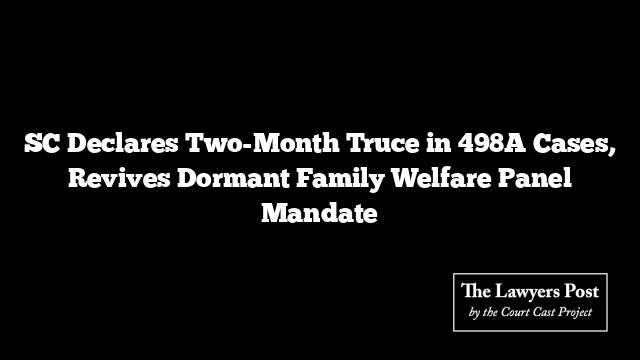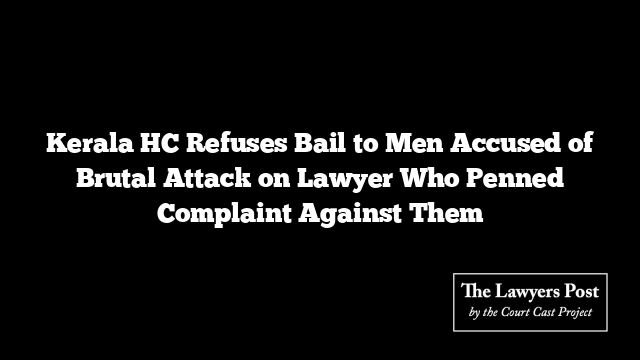The Supreme Court has re-lit a fuse long thought extinguished. Breathing life back into a shelved directive, the apex court has reinstated the Allahabad High Court’s 2022 guidelines aimed at cooling tempers before handcuffs snap shut in matrimonial cruelty cases.
Effective immediately across the country, arrests under Section 498A of the Indian Penal Code will now be paused for 60 days. This “cooling-period,” as the Court calls it, is meant to allow for reconciliation attempts through Family Welfare Committees (FWCs)—bodies set up to douse the flames of matrimonial discord before they turn into criminal infernos.
The ruling came in a case that was anything but tame—multiple FIRs, a marital fallout, and a husband and his father spending 109 and 103 days behind bars, respectively, before the dust began to settle.
The bench led by Chief Justice of India BR Gavai and Justice Augustine George Masih declared: the guidelines from paragraphs 32 to 38 of the 2022 Allahabad High Court verdict in Shivangi Bansal v. Sahib Bansal must now operate nationwide. These guidelines, once silenced by the Supreme Court itself in 2018, have been resurrected.
What’s Coming Back:
- No police arrests or coercive action for two months post-FIR in 498A cases involving no grievous charges (like attempted murder).
- All such cases must be routed through a Family Welfare Committee in each district—panels composed of young advocates, mediators, law students, social workers, retired judges, or even well-educated spouses of judicial or administrative officers.
- These panels are empowered to summon both spouses and four elders from each side, aiming to reconcile differences within two months.
- Their report will guide further legal action—but only after the two-month truce has passed.
- If peace is brokered, district judges can close criminal proceedings altogether.
In an unusual but telling move, the top court went further. It ordered the woman who had filed multiple cases—and her family—to publicly apologize in a national newspaper and on every major social media platform for the trauma and hardship caused to the husband’s side. The apology, it clarified, is symbolic—an expression of regret without legal admission of guilt.
And with that, the Supreme Court wielded Article 142 like a scalpel, not only cutting through red tape to dissolve the marriage but also cauterizing the festering wounds of a legal system often weaponized in domestic battles.
Justice, in this case, came with a timeout.





